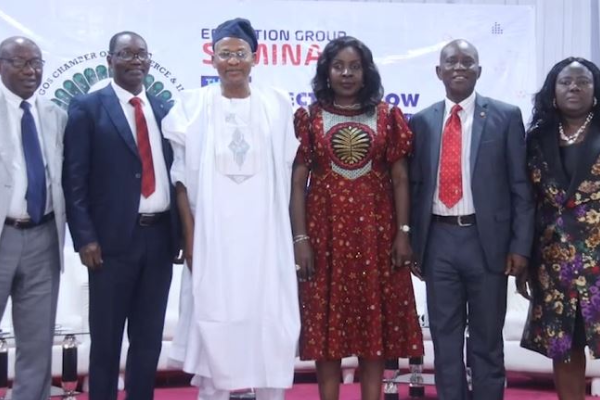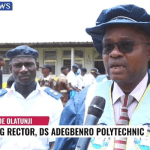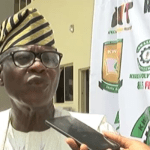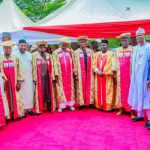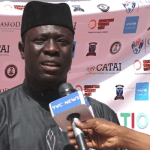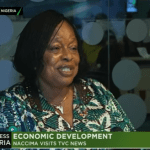The Lagos Chamber of Commerce and Industry (LCCI) has called for provision of more funding to the nation’s education sector in order to restructure and reposition it for economic growth and development.
The call was made by Dr Michael Olawale-Cole, President of the LCCI, at the LCCI Education Group Seminar on “The Effects of Low Government Funding on Education in Nigeria.”
[wonderplugin_video iframe=”https://youtu.be/8H7VGQ6NWyA” lightbox=0 lightboxsize=1 lightboxwidth=960 lightboxheight=540 autoopen=0 autoopendelay=0 autoclose=0 lightboxtitle=”” lightboxgroup=”” lightboxshownavigation=0 showimage=”” lightboxoptions=”” videowidth=600 videoheight=400 keepaspectratio=1 autoplay=0 loop=0 videocss=”position:relative;display:block;background-color:#000;overflow:hidden;max-width:100%;margin:0 auto;” playbutton=”https://www.tvcnews.tv/wp-content/plugins/wonderplugin-video-embed/engine/playvideo-64-64-0.png”]
Olawale-Cole described adequate access to reliable and affordable education as the catalyst for productivity enhancement.
He said it would also help industrialisation and revenue optimisation to make the economy globally competitive.
The LCCI chief said that Nigeria, and indeed Africa, could only join the league of developed economies if education enjoyed deserved focus and transformation.
He said this was especially with emerging realities in the deployment of technology for digital learning and artificial intelligence.
Olawale-Cole noted the 50 per cent increase in allocation to the education sector by the President Muhammadu Buhari-led administration, but said it represented less than 10 per cent of the 2022 total budget.
This, Olawale-Cole posited, was far from the 15-20 per cent benchmark recommended by the United Nations Educational Scientific and Cultural organisation (UNESCO).
He said that the private sector also deserved commendation for its support to the nation’s education sector.
He reiterated that Public-Private Partnership remained the best option for tackling national issues on funding, including the prevailing challenges of the nation’s education sector.
“The Chamber is very much interested in collaborating with the government within our jurisdiction to enhance education delivery in Nigeria.
“The Chamber urges the Federal Government to consider granting economic autonomy to the universities, which will eventually resolve the funding crisis.
“The government at all levels need to create an enabling environment supported with significant investment in the provision of a robust digital economy to empower online education delivery,” he said.
The Lagos Chamber of Commerce and Industry (LCCI) has called for provision of more funding to the nation’s education sector in order to restructure and reposition it for economic growth and development.
The call was made by Dr Michael Olawale-Cole, President of the LCCI, at the LCCI Education Group Seminar on “The Effects of Low Government Funding on Education in Nigeria.”
[wonderplugin_video iframe=”https://youtu.be/8H7VGQ6NWyA” lightbox=0 lightboxsize=1 lightboxwidth=960 lightboxheight=540 autoopen=0 autoopendelay=0 autoclose=0 lightboxtitle=”” lightboxgroup=”” lightboxshownavigation=0 showimage=”” lightboxoptions=”” videowidth=600 videoheight=400 keepaspectratio=1 autoplay=0 loop=0 videocss=”position:relative;display:block;background-color:#000;overflow:hidden;max-width:100%;margin:0 auto;” playbutton=”https://www.tvcnews.tv/wp-content/plugins/wonderplugin-video-embed/engine/playvideo-64-64-0.png”]
Olawale-Cole described adequate access to reliable and affordable education as the catalyst for productivity enhancement.
He said it would also help industrialisation and revenue optimisation to make the economy globally competitive.
The LCCI chief said that Nigeria, and indeed Africa, could only join the league of developed economies if education enjoyed deserved focus and transformation.
He said this was especially with emerging realities in the deployment of technology for digital learning and artificial intelligence.
Olawale-Cole noted the 50 per cent increase in allocation to the education sector by the President Muhammadu Buhari-led administration, but said it represented less than 10 per cent of the 2022 total budget.
This, Olawale-Cole posited, was far from the 15-20 per cent benchmark recommended by the United Nations Educational Scientific and Cultural organisation (UNESCO).
He said that the private sector also deserved commendation for its support to the nation’s education sector.
He reiterated that Public-Private Partnership remained the best option for tackling national issues on funding, including the prevailing challenges of the nation’s education sector.
“The Chamber is very much interested in collaborating with the government within our jurisdiction to enhance education delivery in Nigeria.
“The Chamber urges the Federal Government to consider granting economic autonomy to the universities, which will eventually resolve the funding crisis.
“The government at all levels need to create an enabling environment supported with significant investment in the provision of a robust digital economy to empower online education delivery,” he said.
The Lagos Chamber of Commerce and Industry (LCCI) has called for provision of more funding to the nation’s education sector in order to restructure and reposition it for economic growth and development.
The call was made by Dr Michael Olawale-Cole, President of the LCCI, at the LCCI Education Group Seminar on “The Effects of Low Government Funding on Education in Nigeria.”
[wonderplugin_video iframe=”https://youtu.be/8H7VGQ6NWyA” lightbox=0 lightboxsize=1 lightboxwidth=960 lightboxheight=540 autoopen=0 autoopendelay=0 autoclose=0 lightboxtitle=”” lightboxgroup=”” lightboxshownavigation=0 showimage=”” lightboxoptions=”” videowidth=600 videoheight=400 keepaspectratio=1 autoplay=0 loop=0 videocss=”position:relative;display:block;background-color:#000;overflow:hidden;max-width:100%;margin:0 auto;” playbutton=”https://www.tvcnews.tv/wp-content/plugins/wonderplugin-video-embed/engine/playvideo-64-64-0.png”]
Olawale-Cole described adequate access to reliable and affordable education as the catalyst for productivity enhancement.
He said it would also help industrialisation and revenue optimisation to make the economy globally competitive.
The LCCI chief said that Nigeria, and indeed Africa, could only join the league of developed economies if education enjoyed deserved focus and transformation.
He said this was especially with emerging realities in the deployment of technology for digital learning and artificial intelligence.
Olawale-Cole noted the 50 per cent increase in allocation to the education sector by the President Muhammadu Buhari-led administration, but said it represented less than 10 per cent of the 2022 total budget.
This, Olawale-Cole posited, was far from the 15-20 per cent benchmark recommended by the United Nations Educational Scientific and Cultural organisation (UNESCO).
He said that the private sector also deserved commendation for its support to the nation’s education sector.
He reiterated that Public-Private Partnership remained the best option for tackling national issues on funding, including the prevailing challenges of the nation’s education sector.
“The Chamber is very much interested in collaborating with the government within our jurisdiction to enhance education delivery in Nigeria.
“The Chamber urges the Federal Government to consider granting economic autonomy to the universities, which will eventually resolve the funding crisis.
“The government at all levels need to create an enabling environment supported with significant investment in the provision of a robust digital economy to empower online education delivery,” he said.
The Lagos Chamber of Commerce and Industry (LCCI) has called for provision of more funding to the nation’s education sector in order to restructure and reposition it for economic growth and development.
The call was made by Dr Michael Olawale-Cole, President of the LCCI, at the LCCI Education Group Seminar on “The Effects of Low Government Funding on Education in Nigeria.”
[wonderplugin_video iframe=”https://youtu.be/8H7VGQ6NWyA” lightbox=0 lightboxsize=1 lightboxwidth=960 lightboxheight=540 autoopen=0 autoopendelay=0 autoclose=0 lightboxtitle=”” lightboxgroup=”” lightboxshownavigation=0 showimage=”” lightboxoptions=”” videowidth=600 videoheight=400 keepaspectratio=1 autoplay=0 loop=0 videocss=”position:relative;display:block;background-color:#000;overflow:hidden;max-width:100%;margin:0 auto;” playbutton=”https://www.tvcnews.tv/wp-content/plugins/wonderplugin-video-embed/engine/playvideo-64-64-0.png”]
Olawale-Cole described adequate access to reliable and affordable education as the catalyst for productivity enhancement.
He said it would also help industrialisation and revenue optimisation to make the economy globally competitive.
The LCCI chief said that Nigeria, and indeed Africa, could only join the league of developed economies if education enjoyed deserved focus and transformation.
He said this was especially with emerging realities in the deployment of technology for digital learning and artificial intelligence.
Olawale-Cole noted the 50 per cent increase in allocation to the education sector by the President Muhammadu Buhari-led administration, but said it represented less than 10 per cent of the 2022 total budget.
This, Olawale-Cole posited, was far from the 15-20 per cent benchmark recommended by the United Nations Educational Scientific and Cultural organisation (UNESCO).
He said that the private sector also deserved commendation for its support to the nation’s education sector.
He reiterated that Public-Private Partnership remained the best option for tackling national issues on funding, including the prevailing challenges of the nation’s education sector.
“The Chamber is very much interested in collaborating with the government within our jurisdiction to enhance education delivery in Nigeria.
“The Chamber urges the Federal Government to consider granting economic autonomy to the universities, which will eventually resolve the funding crisis.
“The government at all levels need to create an enabling environment supported with significant investment in the provision of a robust digital economy to empower online education delivery,” he said.
The Lagos Chamber of Commerce and Industry (LCCI) has called for provision of more funding to the nation’s education sector in order to restructure and reposition it for economic growth and development.
The call was made by Dr Michael Olawale-Cole, President of the LCCI, at the LCCI Education Group Seminar on “The Effects of Low Government Funding on Education in Nigeria.”
[wonderplugin_video iframe=”https://youtu.be/8H7VGQ6NWyA” lightbox=0 lightboxsize=1 lightboxwidth=960 lightboxheight=540 autoopen=0 autoopendelay=0 autoclose=0 lightboxtitle=”” lightboxgroup=”” lightboxshownavigation=0 showimage=”” lightboxoptions=”” videowidth=600 videoheight=400 keepaspectratio=1 autoplay=0 loop=0 videocss=”position:relative;display:block;background-color:#000;overflow:hidden;max-width:100%;margin:0 auto;” playbutton=”https://www.tvcnews.tv/wp-content/plugins/wonderplugin-video-embed/engine/playvideo-64-64-0.png”]
Olawale-Cole described adequate access to reliable and affordable education as the catalyst for productivity enhancement.
He said it would also help industrialisation and revenue optimisation to make the economy globally competitive.
The LCCI chief said that Nigeria, and indeed Africa, could only join the league of developed economies if education enjoyed deserved focus and transformation.
He said this was especially with emerging realities in the deployment of technology for digital learning and artificial intelligence.
Olawale-Cole noted the 50 per cent increase in allocation to the education sector by the President Muhammadu Buhari-led administration, but said it represented less than 10 per cent of the 2022 total budget.
This, Olawale-Cole posited, was far from the 15-20 per cent benchmark recommended by the United Nations Educational Scientific and Cultural organisation (UNESCO).
He said that the private sector also deserved commendation for its support to the nation’s education sector.
He reiterated that Public-Private Partnership remained the best option for tackling national issues on funding, including the prevailing challenges of the nation’s education sector.
“The Chamber is very much interested in collaborating with the government within our jurisdiction to enhance education delivery in Nigeria.
“The Chamber urges the Federal Government to consider granting economic autonomy to the universities, which will eventually resolve the funding crisis.
“The government at all levels need to create an enabling environment supported with significant investment in the provision of a robust digital economy to empower online education delivery,” he said.
The Lagos Chamber of Commerce and Industry (LCCI) has called for provision of more funding to the nation’s education sector in order to restructure and reposition it for economic growth and development.
The call was made by Dr Michael Olawale-Cole, President of the LCCI, at the LCCI Education Group Seminar on “The Effects of Low Government Funding on Education in Nigeria.”
[wonderplugin_video iframe=”https://youtu.be/8H7VGQ6NWyA” lightbox=0 lightboxsize=1 lightboxwidth=960 lightboxheight=540 autoopen=0 autoopendelay=0 autoclose=0 lightboxtitle=”” lightboxgroup=”” lightboxshownavigation=0 showimage=”” lightboxoptions=”” videowidth=600 videoheight=400 keepaspectratio=1 autoplay=0 loop=0 videocss=”position:relative;display:block;background-color:#000;overflow:hidden;max-width:100%;margin:0 auto;” playbutton=”https://www.tvcnews.tv/wp-content/plugins/wonderplugin-video-embed/engine/playvideo-64-64-0.png”]
Olawale-Cole described adequate access to reliable and affordable education as the catalyst for productivity enhancement.
He said it would also help industrialisation and revenue optimisation to make the economy globally competitive.
The LCCI chief said that Nigeria, and indeed Africa, could only join the league of developed economies if education enjoyed deserved focus and transformation.
He said this was especially with emerging realities in the deployment of technology for digital learning and artificial intelligence.
Olawale-Cole noted the 50 per cent increase in allocation to the education sector by the President Muhammadu Buhari-led administration, but said it represented less than 10 per cent of the 2022 total budget.
This, Olawale-Cole posited, was far from the 15-20 per cent benchmark recommended by the United Nations Educational Scientific and Cultural organisation (UNESCO).
He said that the private sector also deserved commendation for its support to the nation’s education sector.
He reiterated that Public-Private Partnership remained the best option for tackling national issues on funding, including the prevailing challenges of the nation’s education sector.
“The Chamber is very much interested in collaborating with the government within our jurisdiction to enhance education delivery in Nigeria.
“The Chamber urges the Federal Government to consider granting economic autonomy to the universities, which will eventually resolve the funding crisis.
“The government at all levels need to create an enabling environment supported with significant investment in the provision of a robust digital economy to empower online education delivery,” he said.
The Lagos Chamber of Commerce and Industry (LCCI) has called for provision of more funding to the nation’s education sector in order to restructure and reposition it for economic growth and development.
The call was made by Dr Michael Olawale-Cole, President of the LCCI, at the LCCI Education Group Seminar on “The Effects of Low Government Funding on Education in Nigeria.”
[wonderplugin_video iframe=”https://youtu.be/8H7VGQ6NWyA” lightbox=0 lightboxsize=1 lightboxwidth=960 lightboxheight=540 autoopen=0 autoopendelay=0 autoclose=0 lightboxtitle=”” lightboxgroup=”” lightboxshownavigation=0 showimage=”” lightboxoptions=”” videowidth=600 videoheight=400 keepaspectratio=1 autoplay=0 loop=0 videocss=”position:relative;display:block;background-color:#000;overflow:hidden;max-width:100%;margin:0 auto;” playbutton=”https://www.tvcnews.tv/wp-content/plugins/wonderplugin-video-embed/engine/playvideo-64-64-0.png”]
Olawale-Cole described adequate access to reliable and affordable education as the catalyst for productivity enhancement.
He said it would also help industrialisation and revenue optimisation to make the economy globally competitive.
The LCCI chief said that Nigeria, and indeed Africa, could only join the league of developed economies if education enjoyed deserved focus and transformation.
He said this was especially with emerging realities in the deployment of technology for digital learning and artificial intelligence.
Olawale-Cole noted the 50 per cent increase in allocation to the education sector by the President Muhammadu Buhari-led administration, but said it represented less than 10 per cent of the 2022 total budget.
This, Olawale-Cole posited, was far from the 15-20 per cent benchmark recommended by the United Nations Educational Scientific and Cultural organisation (UNESCO).
He said that the private sector also deserved commendation for its support to the nation’s education sector.
He reiterated that Public-Private Partnership remained the best option for tackling national issues on funding, including the prevailing challenges of the nation’s education sector.
“The Chamber is very much interested in collaborating with the government within our jurisdiction to enhance education delivery in Nigeria.
“The Chamber urges the Federal Government to consider granting economic autonomy to the universities, which will eventually resolve the funding crisis.
“The government at all levels need to create an enabling environment supported with significant investment in the provision of a robust digital economy to empower online education delivery,” he said.
The Lagos Chamber of Commerce and Industry (LCCI) has called for provision of more funding to the nation’s education sector in order to restructure and reposition it for economic growth and development.
The call was made by Dr Michael Olawale-Cole, President of the LCCI, at the LCCI Education Group Seminar on “The Effects of Low Government Funding on Education in Nigeria.”
[wonderplugin_video iframe=”https://youtu.be/8H7VGQ6NWyA” lightbox=0 lightboxsize=1 lightboxwidth=960 lightboxheight=540 autoopen=0 autoopendelay=0 autoclose=0 lightboxtitle=”” lightboxgroup=”” lightboxshownavigation=0 showimage=”” lightboxoptions=”” videowidth=600 videoheight=400 keepaspectratio=1 autoplay=0 loop=0 videocss=”position:relative;display:block;background-color:#000;overflow:hidden;max-width:100%;margin:0 auto;” playbutton=”https://www.tvcnews.tv/wp-content/plugins/wonderplugin-video-embed/engine/playvideo-64-64-0.png”]
Olawale-Cole described adequate access to reliable and affordable education as the catalyst for productivity enhancement.
He said it would also help industrialisation and revenue optimisation to make the economy globally competitive.
The LCCI chief said that Nigeria, and indeed Africa, could only join the league of developed economies if education enjoyed deserved focus and transformation.
He said this was especially with emerging realities in the deployment of technology for digital learning and artificial intelligence.
Olawale-Cole noted the 50 per cent increase in allocation to the education sector by the President Muhammadu Buhari-led administration, but said it represented less than 10 per cent of the 2022 total budget.
This, Olawale-Cole posited, was far from the 15-20 per cent benchmark recommended by the United Nations Educational Scientific and Cultural organisation (UNESCO).
He said that the private sector also deserved commendation for its support to the nation’s education sector.
He reiterated that Public-Private Partnership remained the best option for tackling national issues on funding, including the prevailing challenges of the nation’s education sector.
“The Chamber is very much interested in collaborating with the government within our jurisdiction to enhance education delivery in Nigeria.
“The Chamber urges the Federal Government to consider granting economic autonomy to the universities, which will eventually resolve the funding crisis.
“The government at all levels need to create an enabling environment supported with significant investment in the provision of a robust digital economy to empower online education delivery,” he said.

